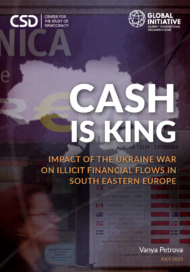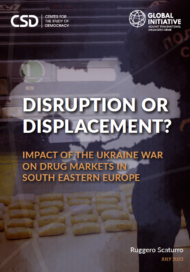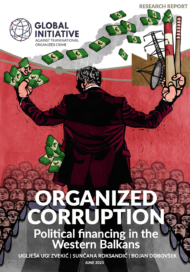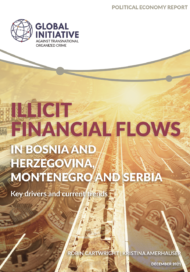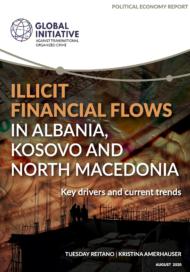Posted on 24 Jul 2023
Illicit cross-border financial flows – estimated at US$1–1.6 trillion a year globally – are harming economic development on a national and global level. This is particularly true when such flows originate in heavily étatist economies, with no effective division or independence of the private from the public or state-owned sector.
Autocracies have long utilized obfuscated corporate ownership structures and illicit financial flows (IFFs) for nefarious purposes such as bribery, corruption and improper lobbying to secure anything from technologies and know-how to economic and political influence on countries of interest. Russia has established a pattern of malign economic impact in Europe through its cultivation of ‘an opaque network of patronage across the region that it uses to influence and direct decision-making’ in key markets and institutions.
IFFs in the Balkan region, in particular, are manifold, multi-directional and, proportionally, large as a percentage of GDP. While global illicit outflows are 3–5% of world GDP, IFFs in the Balkans are estimated at about 6% of the region’s GDP. The common denominator of the Western Balkan countries is their vulnerabilities kindled by institutional weakness and state capture.
IFFs promote rent-seeking and criminal behaviour, reduce governments’ capacity to support development and inclusive growth, undermine the rule of law and jeopardize the business environment. Illicit flows drain public resources, reduce the scope and quality of public services and, thus, undermine confidence in state institutions.
The primary goal of this report is to assess the major enablers and vulnerabilities of illicit finance in the eight Balkan countries (Albania, Bosnia and Herzegovina, Bulgaria, Croatia, Kosovo, Montenegro, North Macedonia and Serbia) after Russia’s invasion of Ukraine. More concretely, the study aims to analyze the primary IFFs sources and channels in the region, and identify any emerging trends concerning modus operandi, routes, business models, use of information and communications technology. In addition, the study intends to inspect the pressing challenges to border control, police and anti-money laundering authorities to effectively prevent, investigate and counter organized crime involved in cash smuggling and money laundering. Finally, the report aims to suggest feasible recommendations for improvement.
